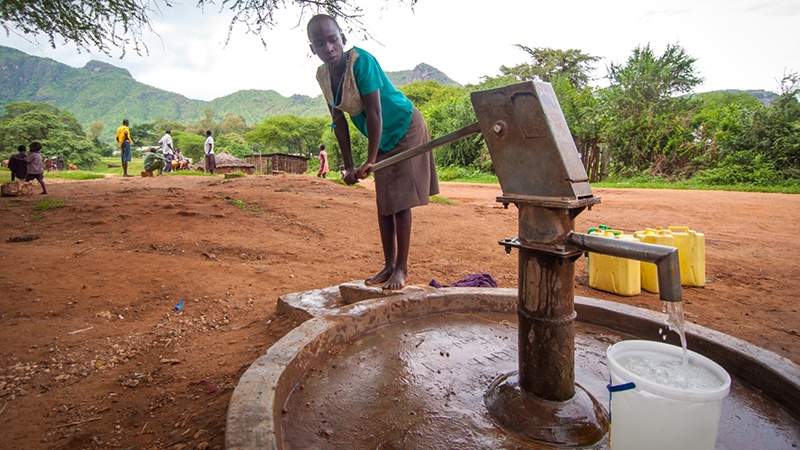Rediscovering Mercy: an invitation to connect faith and mercy
Catherine Gorman works in CAFOD’s Theology Programme. On Divine Mercy Sunday she reflects on how we can “be merciful as our Father is merciful”.

Throughout this Year of Mercy, but perhaps particularly today on Divine Mercy Sunday, we are called to “be merciful as our Father is merciful” (Luke 6:36). For Archbishop Rino Fisichella, President of the Pontifical Council for the Promotion of the New Evangelisation, this call “serves as an invitation to follow the merciful example of the Father who asks us not to judge or condemn, but to forgive and to give love and forgiveness without measure.”
This is a real challenge. Personally, I find that it is so much easier to hold a grudge, to judge others, to close myself off, rather than to open myself up, to let go and forgive. How can I possibly try to emulate the mercy of God in my interactions with others?
Download our Rediscovering Mercy resource>>
Christ, the woman and the Pharisee
Christ shows us how to be with those on the margins of society, how to open ourselves up to one another, especially those who we would normally walk past.
In Luke 7:36-47 we hear how Jesus lets a woman anoint his feet with ointment. She wipes away her tears with her hair as they fall on his feet. We see the struggle of the Pharisee who cannot understand why Jesus allows this to happen. The Pharisee can’t see past the woman’s reputation, the fact that she is a sinner. He no longer sees her as a person with anything to offer. It is easy for me to identify with this, to think of the times when I have disregarded others, having judged them without even really knowing them.
Yet Jesus recognises the love that the woman is showing. He sees deeper, not judging her for her past. He forgives her sins and remonstrates with the Pharisee for not showing him the same welcome that the woman has.
Imagine how the woman must have felt. Waiting for reproach and judgement, she receives compassion and forgiveness.
For a fuller reflection on this Scripture reading, see our new Rediscovering Mercy resource >>
How inspiring it is, to know that we too can be the recipients of Christ’s mercy in our lives. It is surely receiving this mercy for ourselves, which leads us in turn to be merciful to others. As Jesus said, “It is someone who is forgiven little who shows little love.”
Our relationship with Christ should be one that inspires us to love others and to act when we see them denied justice. “Love – caritas – is an extraordinary force which leads people to opt for courageous and generous engagement in the field of justice and peace.” (Caritas in Veritate #1)
Rediscovering mercy
Our new Rediscovering Mercy resource is a way for a group to come together and think further about mercy and its connection with justice. It is a way to reflect on God’s sacrificial love for us and the world, and an opportunity to see how we are being called to love others in our own family, community and the world around us. It also offers practical examples of how we can strive to express the merciful love of Christ in our world.
Download Rediscovering Mercy to use with your group>>
Mercy and love are not passive emotions. They are not simply something that we feel, but rather they lead us to act, to reach out to one another. In this Year of Mercy, it is time to take the first small steps towards one another, especially towards those in need, knowing that the mercy of God which flows through us never ends.

“From the depths of the mystery of God, the great river of mercy wells up and overflows unceasingly. It is a spring that will never run dry, no matter how many people draw from it. Every time someone is in need, he or she can approach it, because the mercy of God never ends.” (Misericordiae Vultus)